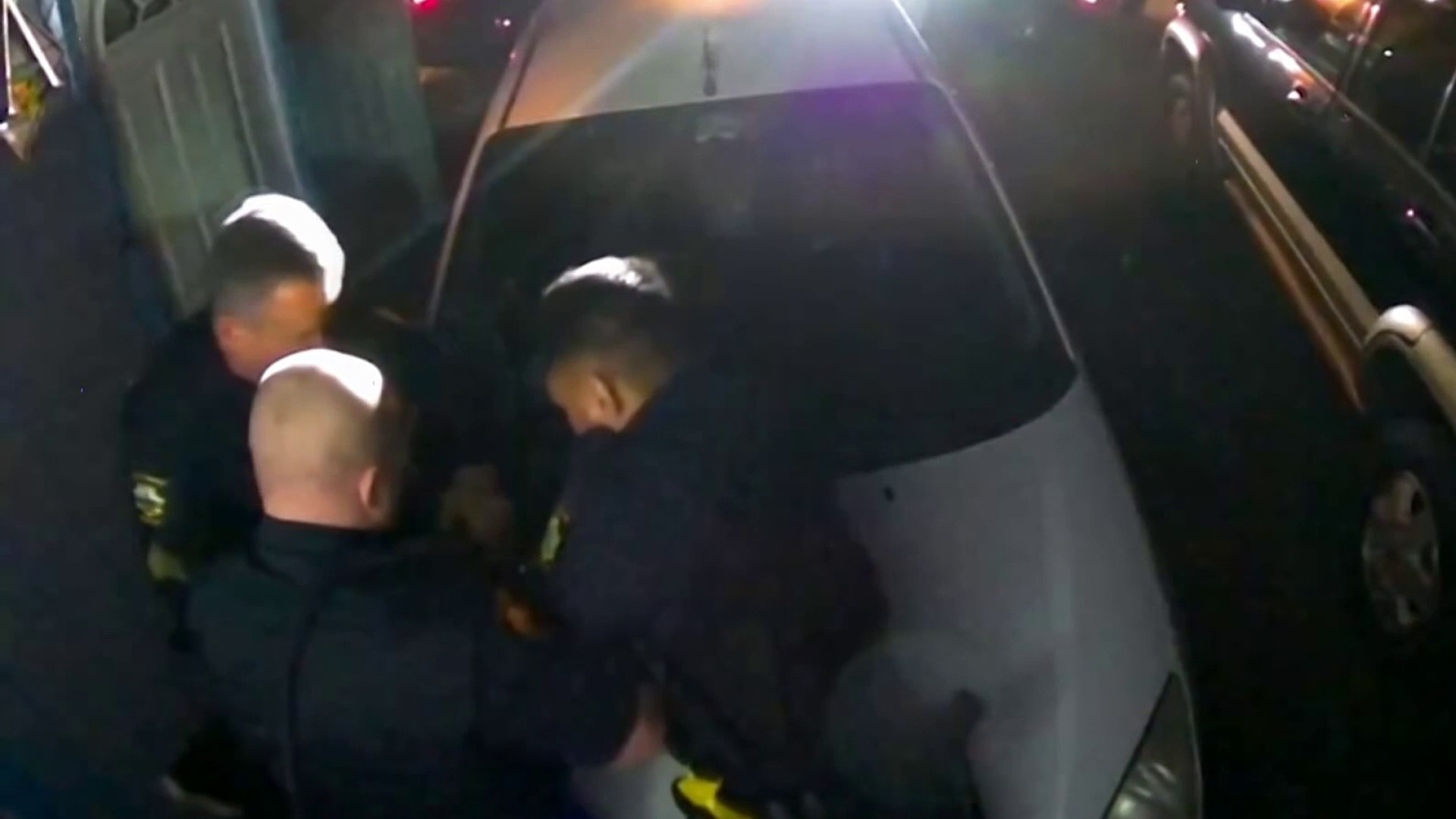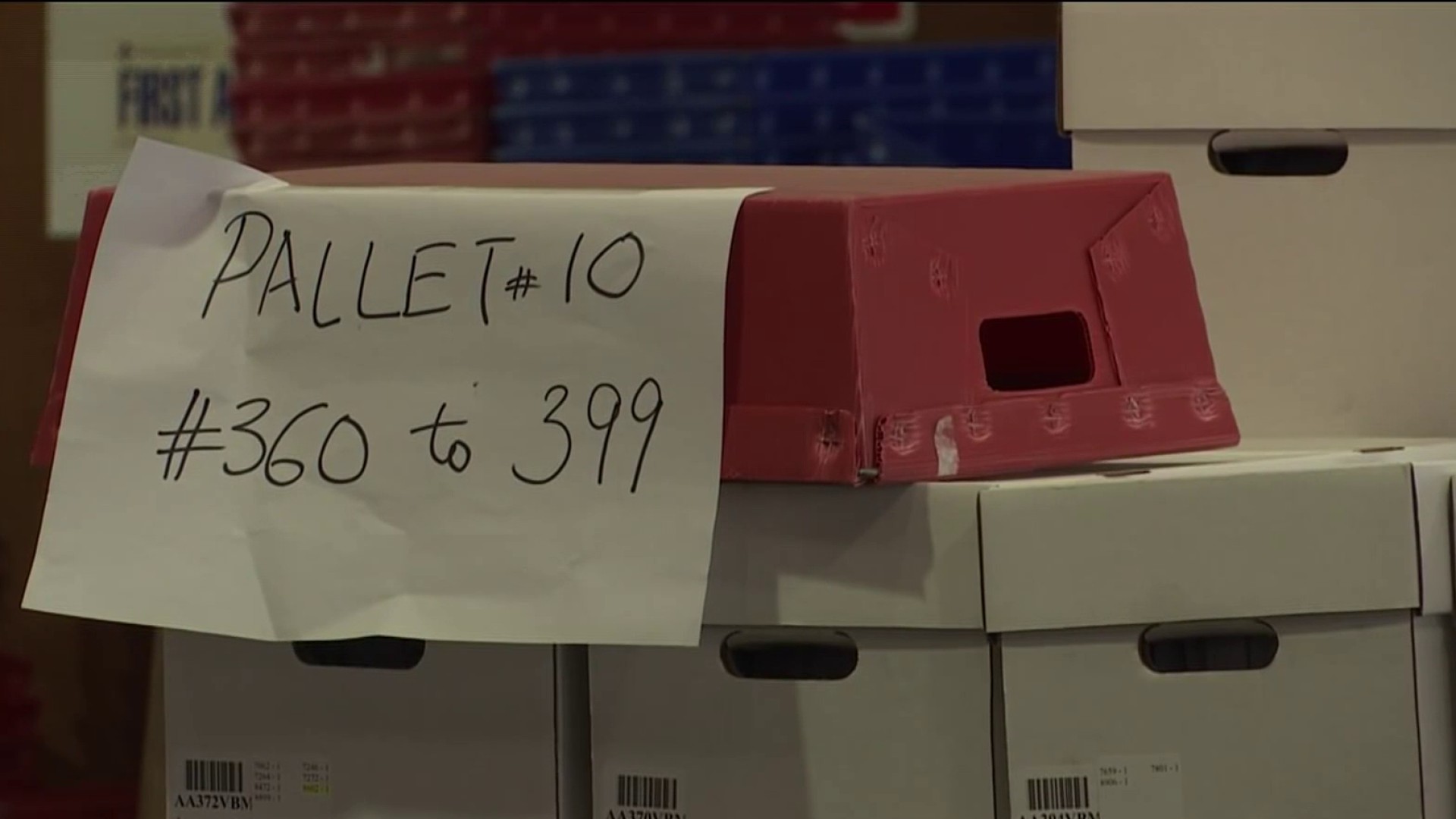Hundreds of red and white polka-dot bandanas decorated the Richmond skyline outside the Rosie the Riveter museum on Saturday morning, their wearers paying homage to the iconic but fictional World War II-era factory worker who drilled her way into history as a lasting symbol of female empowerment.
Organizers estimate that 1,500 women, men and children braved the cutting waterfront chill for the annual event, which is at once a nod to the cartoon woman's legacy and that of her real-life peers. The "Rosies," as they are collectively known, challenged stereotypical notions of "men's work" when they stepped into roles at shipyards and factories, keeping assembly lines running while men fought overseas.
On Saturday, organizers had hoped that the massive turnout would best last year's Guinness World Record for "Largest Gathering of People Dressed as Rosie the Riveter," which the Richmond group snagged in 2016 with 2,229 attendees. Though they fell short of beating their own record, the mood was still celebratory as Rosie lookalikes danced and jived to classic songs from the 1940s and 1950s.
Attendees and organizers said it wasn't about winning a title; it was about paying tribute to women whose role in the war effort is often marginalized.
"They were the feminists before feminism was a term people used," said Louise Berman, who came donning Rosie's trademark bandana and dark blue coveralls. "Rosie is one of many, many women who came before us."
The story is well-worn, but it bears repeating, said Berman. When the men returned home from war, some of the Rosies refused to return to their cloistered domesticated spheres. It was too late; the trailblazers had already been allowed to actualize their economic power, and there was no turning back. Many of the 16 million women would go on to enmesh themselves in other career tracks, tenaciously braving explicit workplace sexism from men who thought they ought to go home.
"It was the start of something big," explained Ardel Robinson, speaking of the Rosies with unmistakable reverence. "They wanted to keep working....What they did helped make it more acceptable to society."
Local
Most of the original Rosies are now in their eighties and nineties. When a group of them walked to seats near the front of a makeshift stage at the Craneway Pavilion, women young and old reached out to shake their hands.
"The funny thing is, if you ask the Rosies who are still with us, they don't realize how special — how truly groundbreaking — what they did was," said attendee Carla Raspuccio, whose mother was a factory worker during the war. "They did it because they had to. They weren't trying to make a statement, but their success paved the way for working women all over the the U.S."
That influence isn't lost on the scores of young women who turned up on Saturday, several of whom cited the current political climate with amplifying their interest in Rosie and women-centered gatherings. With wounds from the 2016 election still smarting, college student Malica Hughes described feeling more empowered than ever to stand up for women's rights — and to pay homage to forbearers.
"Rosie is historical, but she's also something I think we really need right now," Hughes said. "When we have a president who literally brags about groping women, when we have giant companies that don't respect or hire women, something's wrong."
Her friend, Sarah Burns, later added: "At the end of the day, Rosie pushed women forward. So, I guess, who better to pay tribute to when it seems like the whole country is going backward?"



